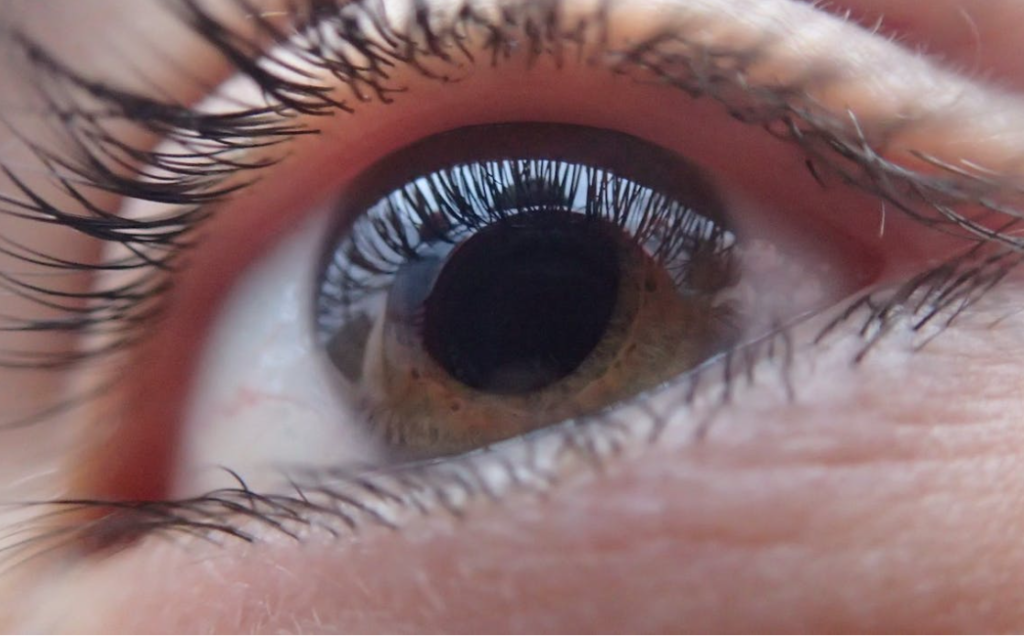Confidence Boost
Learn how to boost your confidence by using visualization, doing good deeds, and socializing.

Selfpause Affirmation App
Download the app to get 1,000’s of affirmation meditations and everything you need to write, record and listen to your own.
Whether it’s at the office or socialising with friends, it’s important to have confidence. It will help you to be able to carry yourself in a way that others will admire you for. There are several ways that you can boost your confidence. Some of them are visualisation, performing good deeds, socialising and step outside your comfort zone.
Visualization

Whether you’re looking to improve your career, find a job or boost your self-esteem, visualization can be an effective technique. Visualization is an exercise that helps you focus on your goals, improves your concentration and increases your motivation. It’s also a powerful tool for overcoming obstacles and fears.
Visualization is a powerful tool for improving performance in sports. Athletes use visualization to practice new skills and prepare for competition. It’s also used for social challenges like public speaking.
Visualization can also help you relax and improve your confidence. Visualization uses all your senses to help you achieve your goals.
Visualization boosts confidence by putting you in the moment, removing distractions and allowing you to focus on your goals. Visualization is also a powerful tool for improving your health and relationships.
Visualization is a powerful tool that has been used for hundreds of years. Some of the best athletes in the world practice visualization before competition. It is also used by people who fear public speaking or difficult conversations. Visualization can also be used to help people overcome their fears of the unknown.
When you visualize, you’re using your imagination. You’re imagining the steps it will take to achieve your goal. It’s like a dress rehearsal. You’re making yourself believe you can do it, so you’ll have the confidence to do it.
Visualization can also help you overcome negative emotions. It can help you achieve your goals faster. You can also use visualization to manifest your future. This is an important skill to develop.
Socializing

Boosting your confidence levels can be a real challenge. Not only will you need to practice social skills such as a conversation starter or a polite hello to a stranger, but you will also need to find the best way to reassure your inner socialite that she or he is worthy of your attention. If you are shy, you might want to enlist the aid of a friend to give you the push in the right direction.
There are many ways to do this. You can read books, take up a new hobby, or simply spend some time with your family. But one of the best ways to boost your confidence levels is to go out and actually interact with others. Boosting your confidence levels through socialising will also allow you to feel more comfortable in your own skin. You might even find that you want to try something new, such as volunteering at a community centre or a local charity. If you are a nervous nelly, you may have to put in some extra effort before you are able to get out there and enjoy yourself. You may also want to consider some alternative therapies such as meditation or acupuncture. Aside from the obvious benefits of lowering blood pressure and reducing anxiety, you will also reap the benefits of improved sleep and mood.
You may even find that you want to start looking for a partner to spend time with. If that isn’t possible, then try to meet up with friends and family.
Performing good deeds

Performing good deeds is one of the best ways to boost your confidence. There are many ways to do this. For example, you can donate extra food to the food bank, or you can volunteer to clean out your local homeless shelter. These activities may not seem like much, but they can make a huge difference in someone’s life.
You can do something as small as holding the door open for a stranger. Or you can do something as big as switching your light bulbs to energy efficient models. These little gestures can have a big impact on your mood.
You might not have time to volunteer to help out at a local soup kitchen, but you can donate old eyeglasses to a local rehab center. You can also sign up for a CPR course. It’s not only a good idea to learn these skills, but it will make you feel better about yourself as well.
A study done by the Harvard University School of Public Health found that performing good deeds is actually a smart move. The research, commissioned by insurance firm Simplyhealth, found that doing good deeds can have a positive impact on your health. For example, you’ll lower your blood pressure and reduce your risk of heart attack and stroke. This type of activity also demonstrates that you have the power to change someone’s life.
Exercise self-comparison
Having a good ole fashioned work out is a surefire way to a) boost your confidence level, and b) boost your mood. The same goes for making sure you take the time to congratulate yourself. The best part is that you’ll be more productive and less likely to burn out if you’re not trying. You might even get a boost in your ego. The most important part is that you’ll have a better time interacting with your co-workers, and that can only be a good thing.
As with most things in life, the best way to do it is to do it yourself. A brisk walk around the block will help you get your blood pumping, which is a good thing when it comes to boosting your confidence level. Having a fitness plan in place will also help you stick to it. After all, you wouldn’t want to jinx your newfound fitness routine, right? It’s also a good time to check up with your doctor, so you can make sure your body is in top form.
Smiling

Having a happy smile can improve your health and your confidence. It can also help you to make new friends. A great smile can also help you get a promotion. It can also boost your immune system.
Smiling releases several chemicals into the brain, including dopamine, serotonin, and endorphins. Dopamine, in particular, is known as a happy hormone. This can help alleviate anxiety and depression. Smiling can also lower your blood pressure, making you feel less stressed.
Smiling can also make you look younger. Studies show that people perceive people who smile as more attractive. They are also perceived as kinder, friendlier, and more approachable.
Smiling releases endorphins, the chemical that helps relieve pain. It also increases blood flow to the brain and helps increase oxygen flow. A study published in the Journal of Emotion found that when you smile, you actually change the chemicals in another person’s brain.
Smiling also makes you look healthier. A great smile can make you look younger, healthier, and more attractive. People also associate smiling with success. A happy smile can help you land a new job or make a business deal.
It can also make you more productive. People who smile more tend to be more confident, approachable, and friendly. This can help you to improve your relationships with colleagues and make a good first impression.
Having a smile can improve your emotional health, too. Studies have found that smiling can increase serotonin levels, a chemical that acts like an antidepressant.
Stepping outside your comfort zone

Taking risks is the most important way to grow. Whether it is going to school, learning a new skill or taking a job, taking risks is important to our growth.
However, it can be difficult to find the courage to try something new. There are also feelings of fear and uncertainty that can get in the way. However, if you overcome these feelings and stay focused on your goals, you will begin to feel more confident.
There are many ways to boost your confidence, but the first step is to identify what you are afraid of. You can do this by writing down your goals. You can also use your organization’s learning resources to boost your confidence.
You can also work on your self-confidence by stepping outside your comfort zone. Whether it is trying out a new food, talking to a stranger, or even making your first sales call, you will find that taking risks can have a positive impact on your life.
Another way to build confidence is to learn new skills. This can give you a competitive edge. It also gives you a better understanding of the world around you. Learning new skills can also increase your employability.
You can also get out of your comfort zone by taking action every day. You can start small and work your way up. If you are afraid of public speaking, for example, try practicing during meetings. You may even consider joining a local Toastmasters club to practice.
Our Top FAQ's
There are many strategies that you can use to build confidence in yourself. Some options include: setting small, achievable goals and working to achieve them; learning new skills or knowledge that can help you feel more competent and capable; practicing self-care and taking care of your physical, mental, and emotional well-being; seeking support and encouragement from friends, family, or a therapist; and finding ways to challenge and push yourself out of your comfort zone.
Fear of failure is a common challenge that can hold people back from pursuing their goals and aspirations. To overcome this fear and build self-confidence, you might try: setting realistic goals and expectations for yourself; learning to reframe your thinking about failure as a learning opportunity rather than a personal flaw; finding ways to cope with and manage stress and anxiety; and seeking support from friends, family, or a therapist.
Your body language and appearance can have a big impact on how confident you feel and how others perceive you. Some tips for improving your body language and appearance to boost your confidence include: standing up straight and maintaining good posture; making eye contact with others; smiling and using open, non-threatening gestures; dressing in clothing that makes you feel comfortable and confident; and taking care of your personal hygiene.
To become more confident in social situations and public speaking, you might try: practicing your social skills and public speaking skills through role-playing or joining a club or group that focuses on these areas; getting comfortable with the material you are presenting or discussing by thoroughly preparing and rehearsing; finding ways to calm your nerves, such as taking deep breaths or using visualization techniques; and seeking feedback and support from friends, family, or a coach or mentor.
Trusting your own judgement and decision-making abilities is an important part of building self-confidence. Some ways to improve your trust in these areas include: seeking out and considering multiple sources of information and perspectives when making decisions; setting clear goals and priorities to guide your decision-making process; learning from your past experiences and mistakes; and seeking support and guidance from trusted friends, family, or a therapist when needed.
